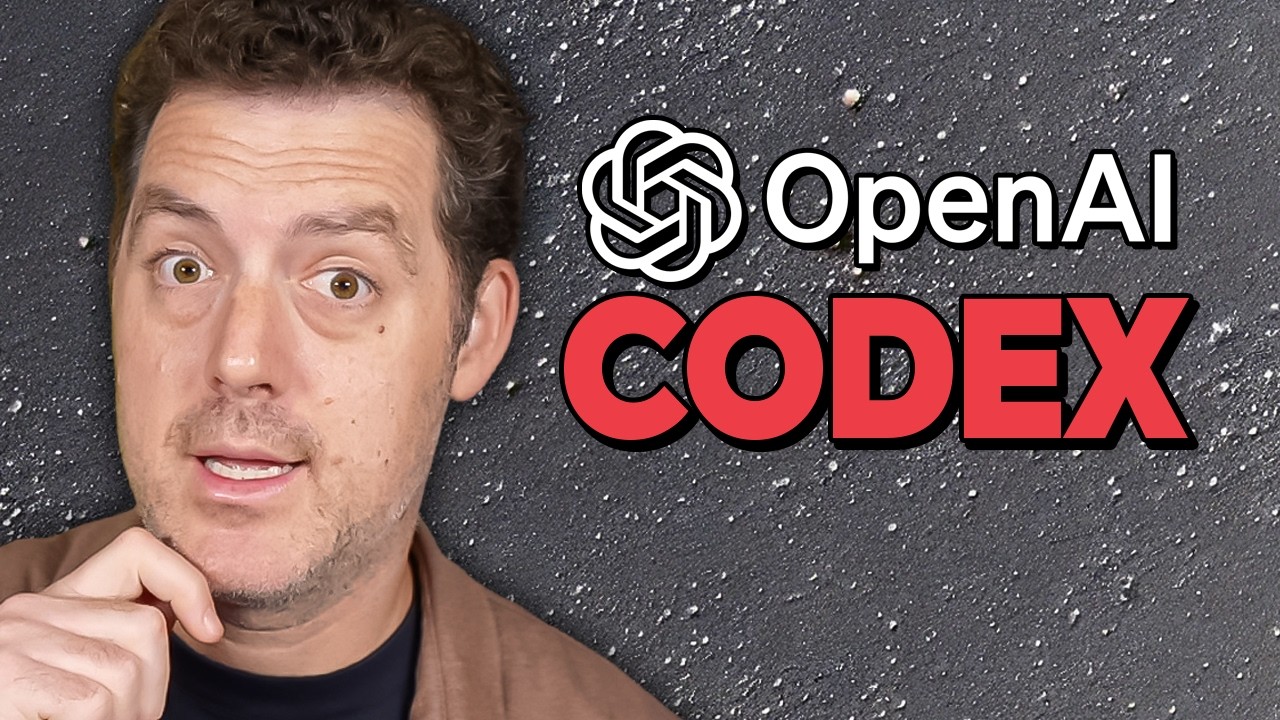The video introduces OpenAI’s new agentic coding tool, Codeex, which features a chat-based, cloud-native interface that allows users to manage multiple isolated coding agents simultaneously for more interactive and efficient software development. It highlights Codeex’s advanced capabilities built on a specialized GPT-3.5 model, its practical features like real-time feedback and GitHub integration, and discusses its potential to revolutionize coding practices and compete with other AI coding solutions.
The video introduces OpenAI’s latest development in AI-powered coding with the unveiling of Codeex, a highly innovative agentic coding product. Unlike traditional coding tools, Codeex features a unique, chat-based interface that operates natively in the cloud, providing a more interactive and vibe-like coding experience. Users can connect their GitHub repositories, ask questions about their codebase, or assign coding tasks directly within the interface. A notable feature is the ability to run multiple coding agents in parallel, each within its own isolated environment, allowing for efficient multitasking and collaboration without conflicts.
The presenter demonstrates how tasks are launched and managed through the interface, highlighting the system’s ability to create separate containers for each task. These containers are fully isolated, ensuring a fresh environment for every task, which includes downloading code, running setup commands, and providing real-time feedback. The chat interface facilitates back-and-forth interactions, enabling users to request code changes, ask follow-up questions, and review suggested modifications seamlessly. Additionally, the system supports command-line interactions via the Codeex CLI, which offers a console with a familiar interface, automatic code summaries, test results, and easy integration with GitHub for code deployment.
OpenAI has developed a custom model called Codeex One, built on top of GPT-3.5, specifically optimized for real-world coding tasks through reinforcement learning. Unlike other models that focus on benchmark performance, Codeex emphasizes practical coding efficiency and effectiveness. The company also appears to position this product as a strategic move against competitors like Windsurf, which has been rumored to be acquired by OpenAI for around $3 billion. The video discusses the competitive landscape, noting how OpenAI is emphasizing the development of specialized, purpose-built models rather than wrapping existing ones, signaling a focus on tailored AI solutions for coding.
The video features insights from OpenAI co-founder Greg Brockman, who discusses the future of coding with AI. He emphasizes that understanding the strengths and weaknesses of AI coding agents can lead to better software engineering practices, such as designing modular codebases and robust testing. Brockman envisions a future where codebases and programming languages evolve to better suit AI-driven development, and where local and cloud-based coding agents will converge. He mentions ongoing developments like the Codec CLI, which runs locally on a user’s machine, and the upcoming feature of signing in with ChatGPT, hinting at a seamless integration between local and cloud environments.
Finally, the presenter shares performance benchmarks demonstrating Codeex’s superior accuracy and efficiency compared to previous models like GPT-3.5 and GPT-4 Mini. The new model outperforms existing solutions on internal OpenAI tests and verified benchmarks, showcasing its advanced capabilities in real-world coding tasks. The mini version of Codeex is available via API at competitive pricing, making it accessible for developers and companies. The video concludes by inviting viewers to compare Codeex with other tools like Windsurf, Cursor, and Replit, encouraging feedback and discussion on how this new AI coding agent might shape the future of software development.
